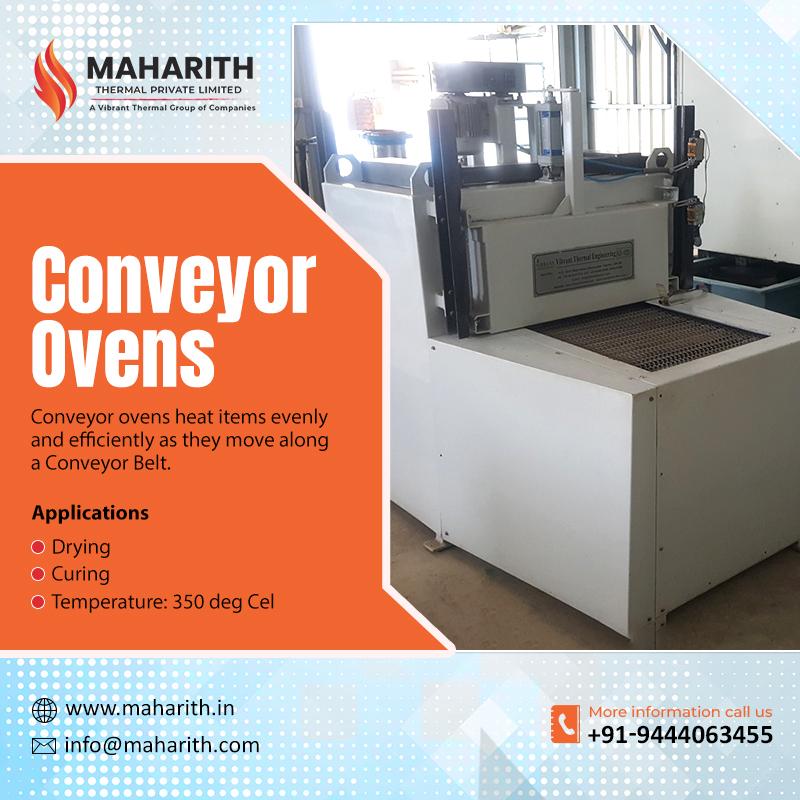Top 5 Ways To Choose a Conveyor Oven

Industrial ovens are among the most adaptable and often used products in the heat processing industry. The conveyor ovens are used for preheating, curing, drying, thermal degreasing, form setting, and baking. They are utilized in a wide range of sectors due to their versatile processing capabilities.
Many industrial oven manufacturers now provide standard-sized ovens. A standard oven is pre-engineered and available in certain sizes which results in lower costs and faster delivery time. If the item size, weight, number, and heat processing needs fall within the parameters of a typical oven, this might be a cost-effective, speedy delivery solution.
Customized ovens are also available, allowing for additional adjustments or additions while retaining the cost-benefit of a standard oven.
Here are the top ten things to consider when picking a conveyor oven.
Part Loading
Standard conveyor ovens are the best option when the parts can be manually or mechanically put into a standard-sized entry platform and no special belts or pallet/part holders are required. If the item does not fit in the regular size range, a custom oven will be required.
Part Size and Weight
An oven may be made to suit any component size or weight, but if your item falls within the usual size range, mark it up for a conventional oven.
Controls
Each vendor will provide a common control package with basic features. If your process requires extra controls (e.g., ramp and soak, multiple set points, data collecting, etc.) that are not included in the standard control package, a custom control package can be created to fit your requirements.
Temperature
Standard ovens have a maximum working temperature. If this meets your needs, a normal conveyor oven may be ideal for you. Custom ovens may be created with numerous temperatures and zones.
Heat Source
An industrial oven may be customized to accommodate any heating media. (e.g., gas, electricity, oil, steam). Standard Ovens have fixed load heights that can be adjusted slightly. Custom ovens can be developed to meet your specific process needs.
Exhaust
Standard Conveyor Ovens are constructed with predetermined exhaust rates. Custom ovens are built to your specifications (e.g., no exhaust, gravity exhaust, or power exhaust).
Airflow
Standard Ovens come with pre-designed airflow configurations, whereas bespoke ovens are tailored to individual needs (e.g. vertical, horizontal, combination, direction, volume, high/low velocity).
Materials for Construction
Standard ovens are normally made of steel or aluminized steel, however bespoke ovens can be created using a variety of materials depending on the purpose.
Certifications
Standard Ovens follow the manufacturer's standard design. Custom Ovens are tailored to your specifications (e.g., Underwriters Laboratory, CE, CSA).
Conclusion
Conveyor ovens are extremely adaptable and suitable for a wide range of industrial applications. Once you've created a specification list based on the criteria listed above, you'll be able to determine whether a standard or bespoke oven is suitable for your procedure.
Post Your Ad Here

Comments